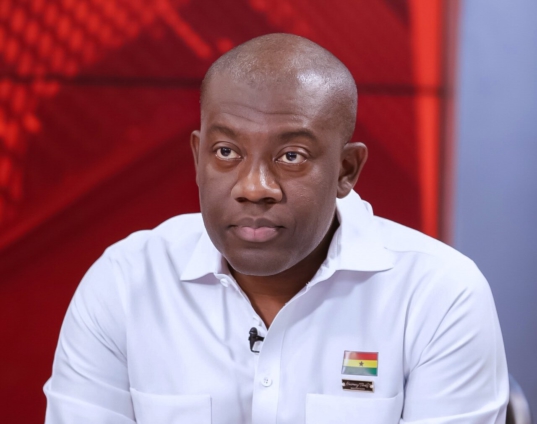The Information Minister, Kojo Oppong Nkrumah, has dismissed claims that government is the cause of the country’s decline in the 2022 Press Freedom Index.
Speaking in Parliament, the Minister noted that after comprehensive investigations, the slump can be attributed to poor remuneration of journalists.
In May, it came to light that Reporters Without Borders (RSF) in its Press Freedom Index had ranked Ghana in the 60th position.
The latest report meant the country had dropped 30 places from the previous position.
Following the revelation, considerable conversation transpired with some blaming state agents’ attacks on journalists as the cause of the slump.
But addressing the House on Thursday, Mr Oppong Nkrumah said the inability of media houses to adequately pay their journalists is a major cause of the decline.
He explained that except for the economic context, the press in Ghana performed extremely well under the other four parameters of the new methodology.
The Minister indicated that:
- Legal framework - 81.42%
- Social-cultural context - 79.64%
- Political context - 66.61%
- Security of journalists - 62.25%
- Economic context - 47.22%
On the back of this, the Information Minister noted that economic context “dragged us heavily on the composite score.”
And here, [Economic] RFS refers to the poverty of individual journalists and media houses. And the facts are clear in this country that because we have opened up the media landscape extensively which is a very good thing, a number of media houses have sprung up and a chunk of them struggle to make ends meet.
“Even this week, you will find a number of reports about some media houses struggling to pay salaries and the RFS contends that when journalists are not paid, the ability to do a sacrosanct free job is questionable,” he explained.
Already, the New Patriotic Party (NPP) has condemned portions of the 2022 World Press Freedom Index which tagged the Akufo-Addo administration as “intolerant of criticism from citizens and the media.”
The Party argued that, in contrast, the media under the NPP is the freest ever.
The NPP’s Director of Communications, Yaw Boaben Asamoa noted that the party’s contribution to the growth of the media under the Fourth Republic is rather exceptional.
“The NPP believes Ghana’s media is the freest ever and that its contribution to media growth are unparalleled in the Fourth Republic.
“In sum, NPP decriminalised speech, supported infrastructure and training with the International Press Centre and support funds and improved spectrum allocations and regulatory oversight,” he said.
Latest Stories
-
5 remanded over GH¢2.3m and $191,900 fake notes
2 minutes -
Trump says Israel and Iran have agreed to ‘complete and total’ ceasefire
14 minutes -
Cedi holds firm against dollar; one dollar equals GH¢12.15 at forex bureaux
15 minutes -
OIC applauds King Mohammed VI’s leadership in safeguarding Al Quds
17 minutes -
Joyful Ethiopians and Eritreans embrace at rare border reopening
25 minutes -
Police officers charged with murder of Kenyan blogger
43 minutes -
US Tennis star Katrina Adams launches “Own The Arena” book in Accra
53 minutes -
US Supreme Court allows Trump to resume deportations to third countries
54 minutes -
US says Kilmar Ábrego García will ‘never go free’ after judge orders his release
1 hour -
Ignore Kennedy Agyapong’s claims; MMDCEs support not sponsored – Bawumia’s spokesman
1 hour -
Daily insight for CEOs: Strategic Agility – Thriving amid constant change
1 hour -
Mother and children suffer severe burns, appeal for support for life-saving treatment
1 hour -
‘Flower Power; An Arewa Story from the South’ opens at Worldfaze in Accra
2 hours -
KNUST researchers highlight potential areas for future research in Heterotis (Supaku) culture
2 hours -
CEO of Magmens Coutre in Obuasi wins Global Woman Fashion Entrepreneur of the Year Award
2 hours

